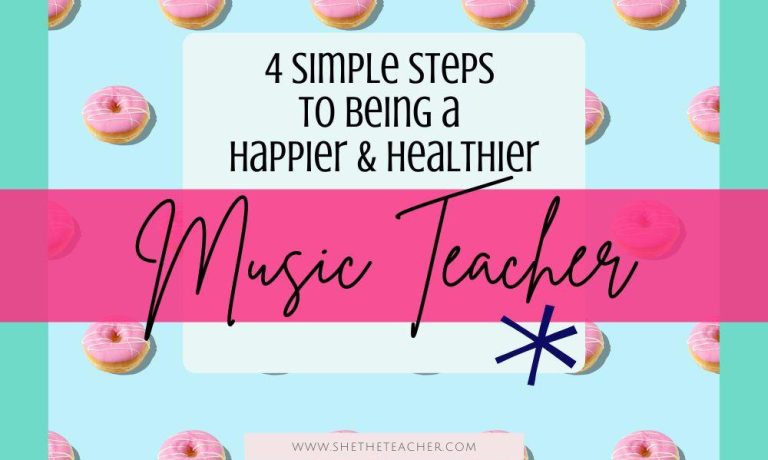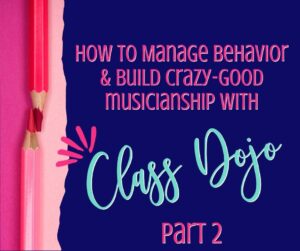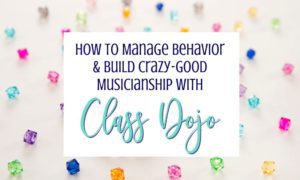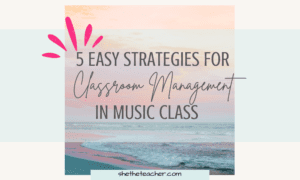Introduction
Teacher stress & its implications on mental health has always been a topic near and dear to my heart (I’ve written about it before). As someone who has struggled mightily with anxiety and depression throughout my music teaching career, I wanted to talk to someone who could provide some new insight on where we go from here as music teachers in an increasingly-taxing era.
A Conversation with Lesley Moffat
So, I sat down to chat with Lesley Moffat, a long-time high-school band director and author of two books, “I Love My Job, But It’s Killing Me” & “Love the Job, Lose the Stress.” She has dedicated her career to teaching both music educators and thousands of her own students how to find success and joy in music while maintaining their mental and physical health.

An Unlikely Bond
We bonded over something two people never want to be bonded over: cancer. I recently endured my own battle with cancer in 2021 and Lesley shared about the sudden loss of her best friend from cancer several years ago- we both were choir teachers. ❤️
Lesley and I have both battled mightily with teacher stress in our mental and physical health issues, hers plagued her for decades as she battled chronic inflammation, never-ending illnesses leading to dozens of surgeries, braces, and visits to the ER; mine started with mental health struggles in my teens and progressed towards healing physically and mentally after losing a lung last year.
It was quite clear: we both have been through the wringer. But honestly, so have ALL music educators!
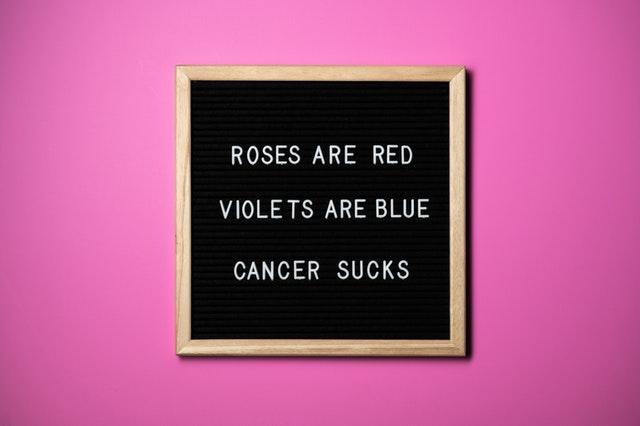
Stressors of Teaching Music
Teaching has always been anxiety-ridden, but it seems like the issues for music teachers have only compounded in the last several years. We have so many sources of teacher stress:
- Long Hours: Music teachers have one of the most demanding jobs out there. Not only do they have to teach during the school day, but they also often have to put in long hours before and after school for practices and community events, and they often give private lessons on top of that.
This can be extremely exhausting and stressful, and it can take its toll on their mental and physical health.
- It can be hard to be a music teacher because our jobs are constantly on public display via concerts & competition. We are also under constant pressure to perform at our best and meet the high expectations of our students, their parents, and our administrators. This can be very overwhelming, and it’s easy to feel like you’re not good enough.
- Constantly having to reinvent our image to stay relevant for our students. What keeps students engaged and interested in music is always changing and it can be hard to keep up. This can be frustrating and stressful, especially when you feel like you’re not reaching your students.
- Lack of Funding: Music education is often one of the first programs to be cut when schools are facing budget cuts. This can be very disheartening for music teachers, who are already struggling to do more with less.
- Having to both recruit and retain students to keep our jobs from year to year. This can be a very anxiety-inducing process, especially when you’re not sure if you’ll have a job next year or if course schedules and offerings are outside your control.
- The demand art places on our soul because we love it SO much. We are perfectionistic as musicians because we have to be: our art form is based on technical mastery. This often leads to stress in music teachers; people who strive for perfection but can rarely reach it.
- Not to mention all of the other MAJOR stressors of being a teacher (pandemic, lacking funding, admin issues, scheduling, school violence/gun laws, student misbehavior, parent drama etc.)
Finally, in addition to everything else, music teachers usually teach on their own “island.” Unlike grade-level teachers who work in teams, we rarely have another teacher in our building who teaches our content or knows our struggles. This is isolating and a battle that we all face. So what do we do to encourage our bodies to grow in ways that handle stress healthfully?

Moffat’s mPower Method: Stress Management for Music Educators
In her books and on her blog, Lesley introduces four primary ways she has completely reinvented her own personal health & teacher stress levels. She calls these four steps, “Moffat’s mPower Method.”
Meals
Lesley often compares eating low-quality food to using a cheap, plastic reed on a high-end wooden clarinet. Will it work in a pinch? Sure, but it won’t sound good.
In the same way, our bodies will continue to live no matter what we feed them, but at a cost (inflammation, chronic disease, high cholesterol, reduced stamina etc.)
Movement
As music teachers, we move all day every day, but in periods of rest (summer vacation, online learning, sick days) it’s very hard to stay moving in ways that benefit our bodies.
It’s so important find ways to maintain movement because it allows all of our nutrients to circulate and toxins to be removed readily from our system. When we go from seasons of intense movement to no movement, our bodies suffer.
In the same way, it’s important to recognize unhealthy chronic patterns of movement (ex. conducting shoulder or neck pain) and address it with a professional therapist.
Music
As music educators, we have a unique opportunity to handle stress- through our music. We can use music to channel our emotional vulnerabilities and complex moods through playlists, via our performance and as vessels for greater emotional awareness in mindfulness.
When you find yourself in seasons of intense stress, find a way to use music to heal whether that’s through journaling to music, songwriting to release emotion, or the simple pleasure of a favorite playlist accompanying you on an afternoon walk in nature. Your music can often be your superpower.
Mindfulness
In my talk with Lesley, we talked a lot about the power of mindfulness. Mindfulness is the quality of being present and aware of our thoughts, feelings, and surroundings. It’s about living in the moment rather than letting our minds run away with us to worry about the future or dwell on the past.
When we’re mindful, we’re able to take control of our anxiety by choosing how to respond rather than react out of habit. This is a critical skill because it allows us to show up more fully for our students and ourselves. Mindfulness itself is a key skill because it allows our body and brain to process information together instead of using coping mechanisms like food, social media, alcohol, or games to numb ourselves from our stress.
When we can view our stress in a non-judgmental way and allow our bodies to feel the stress, we can then begin to process it and release it in a healthy way. (Lesley has an excellent 4-Minute routine that she uses to help start her band classes mindfully. Make sure to grab a copy here!)
As music educators, we have a lot on our plates. We are constantly fighting for our place in the education system while also trying to be the best teachers we can be for our students. It’s a lot of pressure and anxiety that we put on ourselves. It’s so important to find ways to take care of our mental and physical health so that we can be the best teachers we can be for our students.
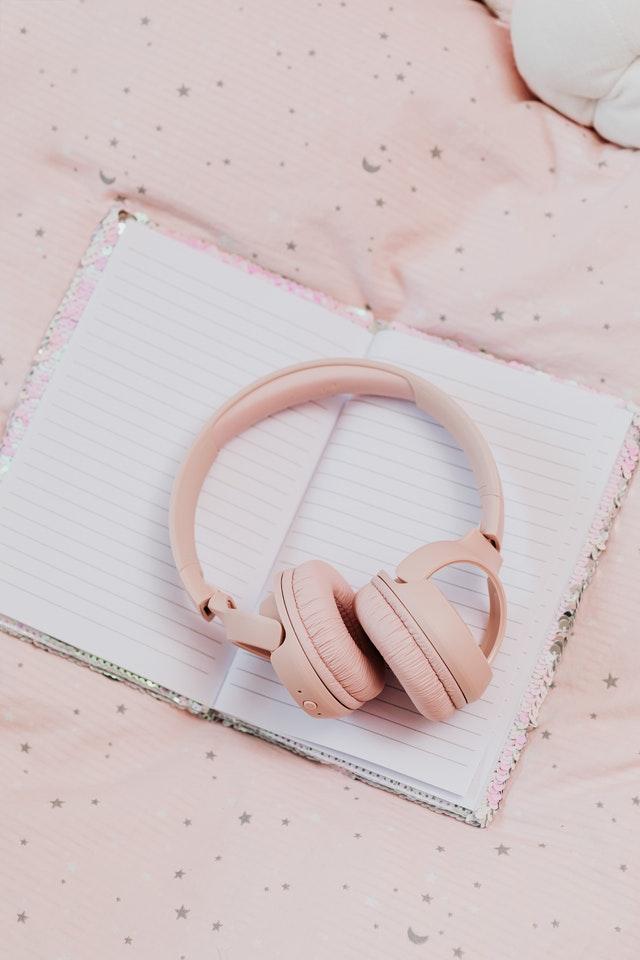
Teacher Stress Isn’t New… Isn’t This Old Information?
So I said to Lesley, “None of this is new information. We’ve always known to take care of our mental health by eating right and moving our bodies. We know we can rely on mindfulness to calm down, that’s a big push in education right now anyway. What makes your method different?”
Her answer? Intention.
The Power of Intention
It takes full intention to eat right and with enough attention to how you feel afterward to recognize foods that are causing you to feel bloated or that give you headaches.
It takes full commitment to the practice of mindfulness, not just a simple 5-minute routine when you’re feeling stressed to make an impact. You need to commit to really learning and understanding your internal self through daily practice.
It takes full ownership of our bodies to move them in ways that don’t cause harm; we need to pay attention to how we move when we move. We need to recognize movement as a natural way our bodies can release stress and tension and make a commitment to move lots and often, especially in periods of high teacher stress.
And it takes full intention to be inspired by music and to love it as deeply as we do. But music, like everything, can become monotonous, especially in the context of classroom teaching. We can become ruled by music instead of treating it as the magic that it really is. But, allowing ourselves to be healed by music is one way that we can mend that bond to our musical selves, instead of beating ourselves up with it.
Like everything, you must constantly commit to being aware of your subconscious sensations that drive action. Don’t allow yourself to turn into a robot, handling stress in the ways you always have. If they’re not working, practice the skill of ‘active attention’ to discover what your body and mind are trying to tell you- you’d be surprised at what you can discover with a little more listening.

Addressing Demoralization vs. Burnout – My Final Thoughts on Teacher Stress
Now, it’s important to me to note that many of the deeply-held teacher stress issues we’re dealing with as a community are not fully within our realm of control. There are often FAR bigger systemic problems within education than we can deal with, even if we are all-in with any of Lesley’s methods.
So, I want you to think of it this way: decreasing your inflammation and stress response makes you MORE apt and able to conquer the systemic issues within education. If you treat yourself the way you know you should be treated, it will be easier to stand up for yourself when others don’t.
Moving forward, I’ll be talking more about what we can do as music educators to advocate for ourselves and our programs, but for now, let’s start here.
Start with us.
Let’s remember the beauty of our humanity and work together to strengthen music education by remembering who we are as PEOPLE first; humans inside bodies who tend to stress without spending the time to understand why… I’m speaking from complete experience here.
Let’s give ourselves the opportunity to relish being alive by celebrating, if nothing else, the joy of being here inside these bodies that already do so much for us.
That’s an excellent place to start in the giant journey ahead of us.
PS: If you’re working on mindfulness in your music classroom, make sure to grab this Mindfulness Freebie! 👇
Looking for a way to add in some more ‘active listening’ without assigning yet another listening log?
Have your students COLOR their listening! 👇
This fun reinterpretation of the classic “listening log” activity will encourage your students to mindfully listen to different aspects of music or to reflect on their emotions as they listen.
You can assign things or students can choose themselves!
3 Worksheets INCLUDED! 👇
Bonus: works as a great sub-activity!

